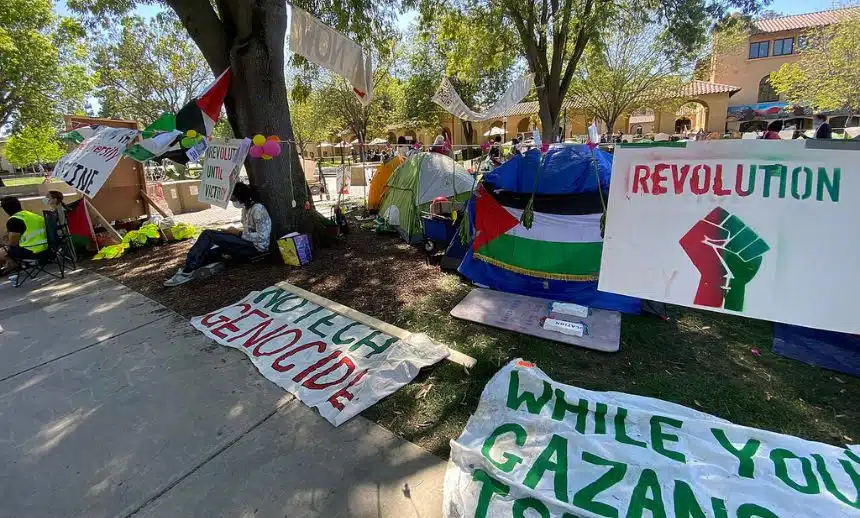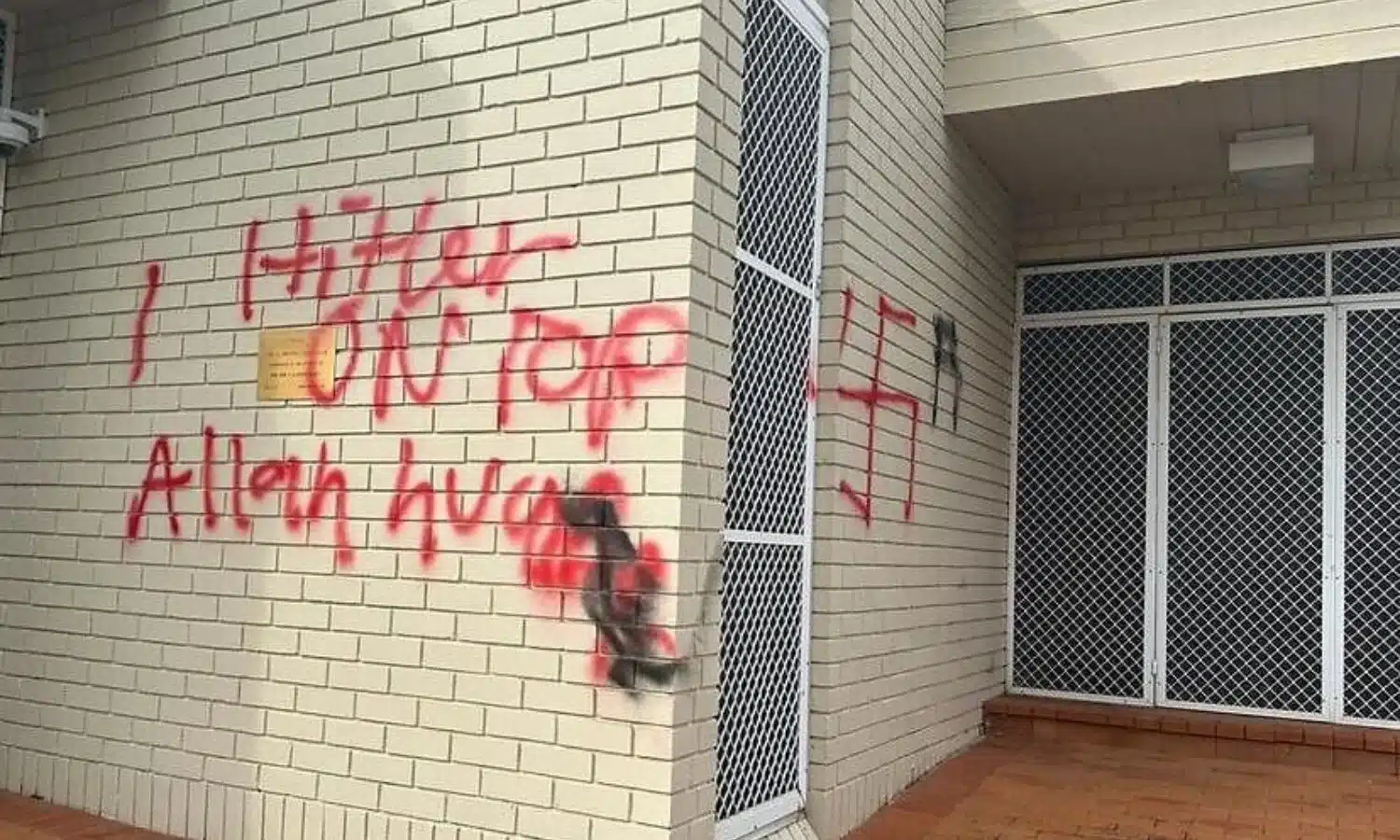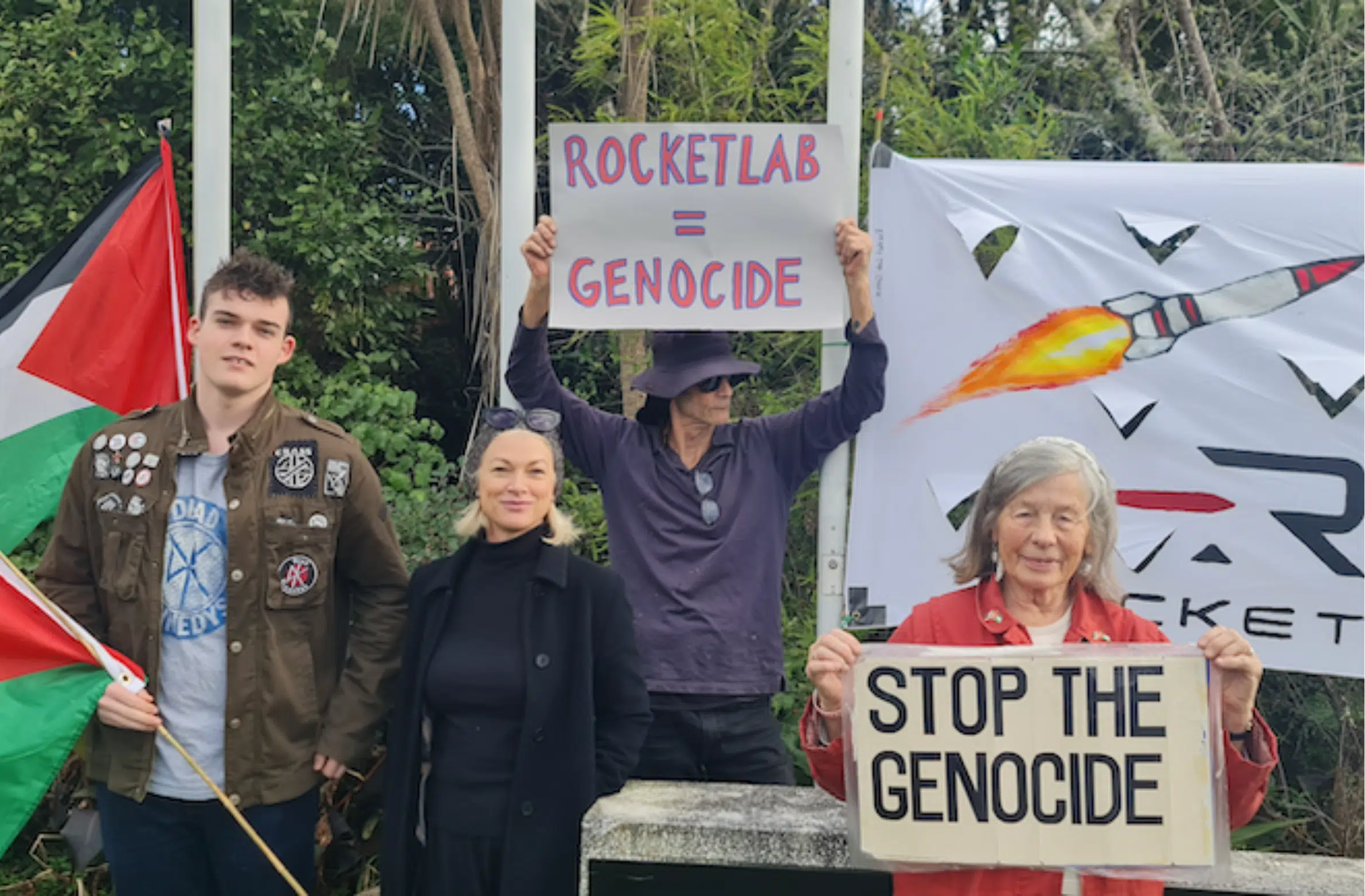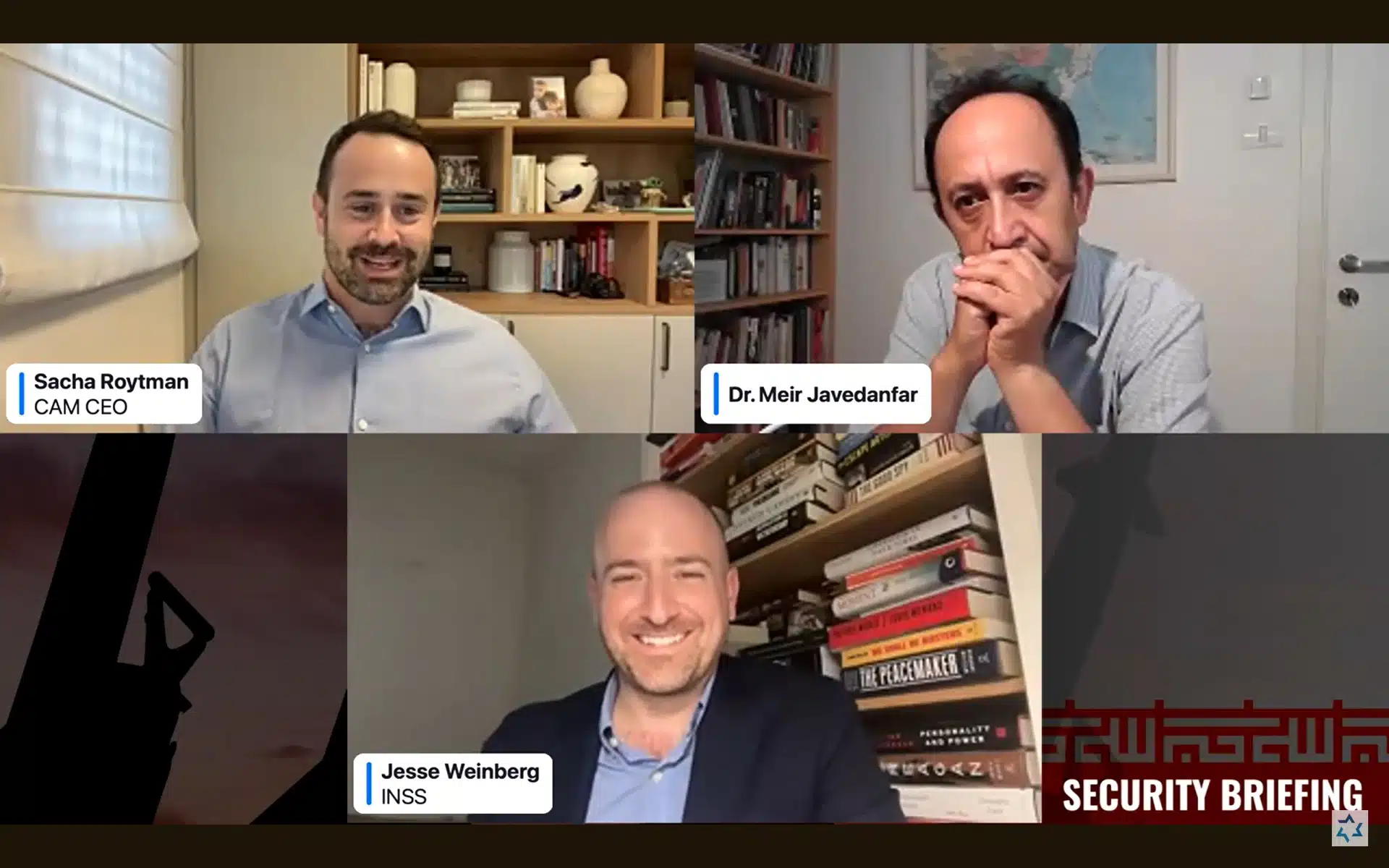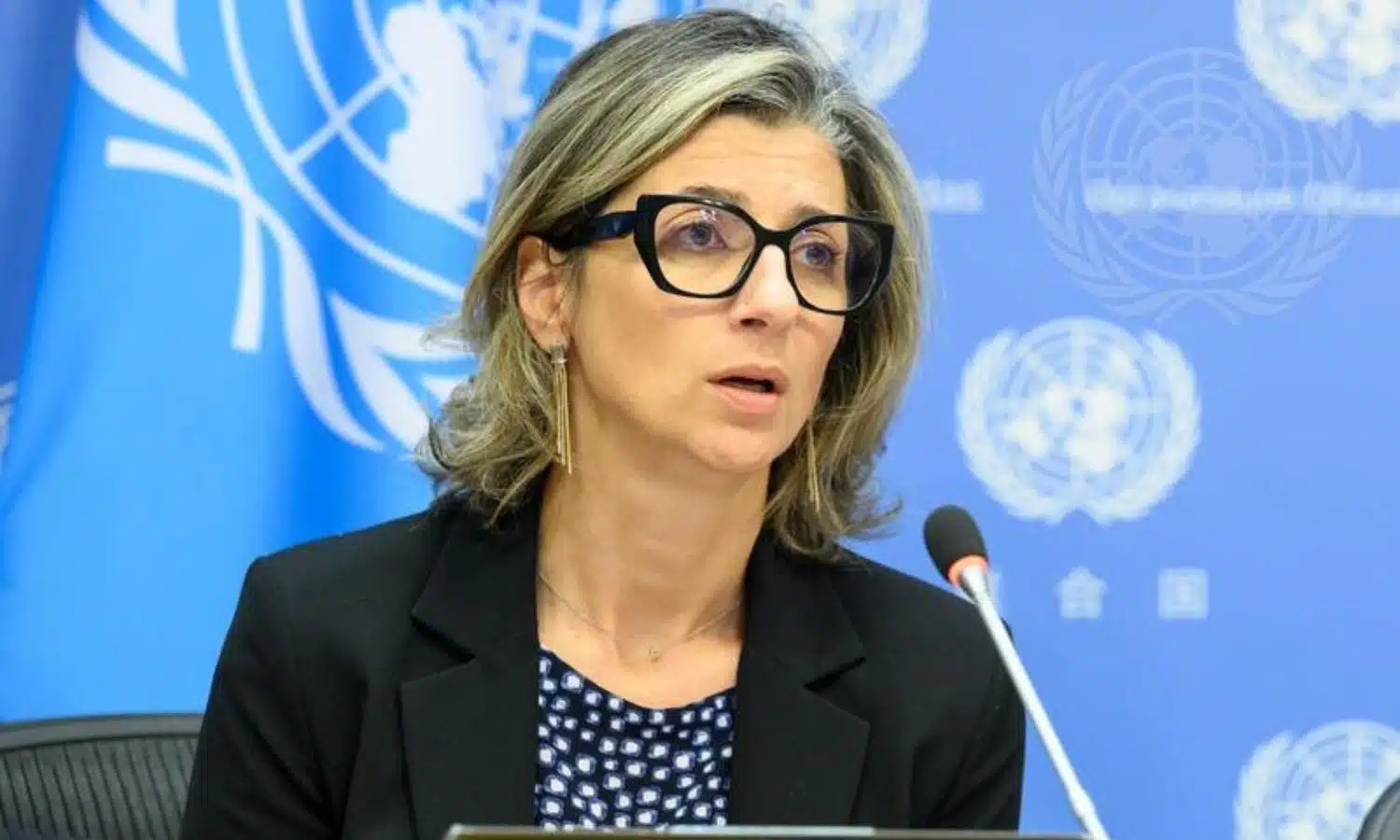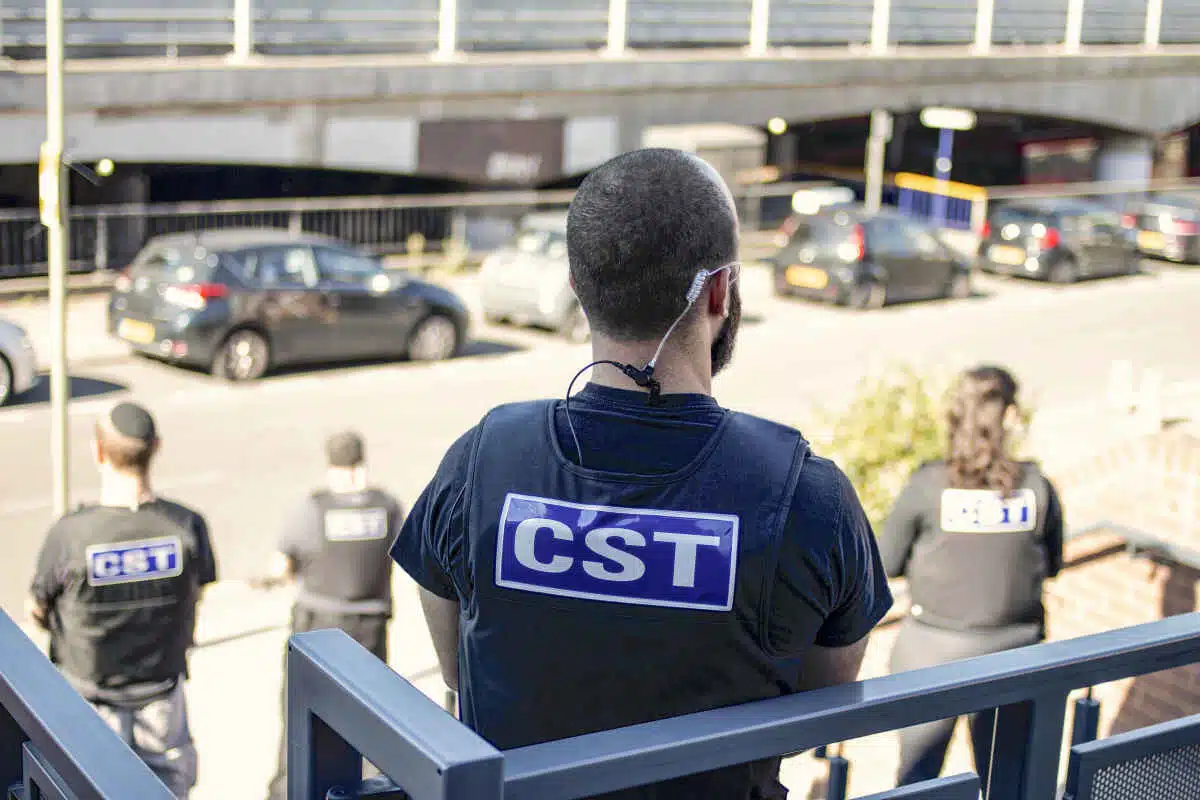
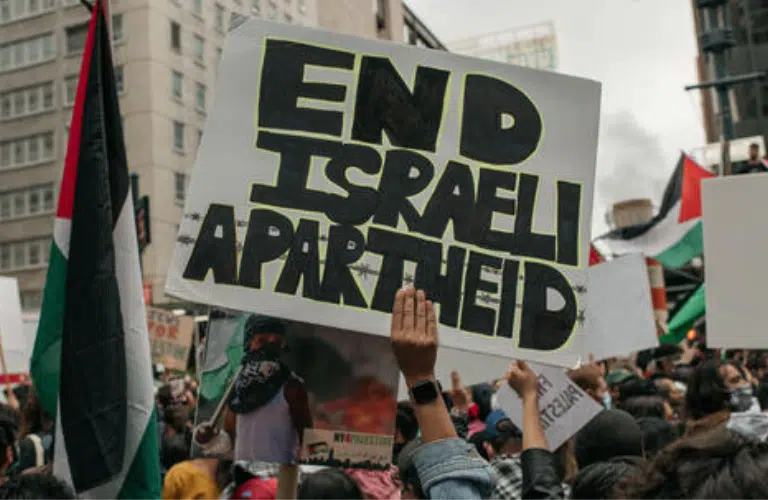
‘Apartheid’ Slander of Israel Is ‘Hate-Based Effort’ to Delegitimize the Jewish State, Bishop Glenn Plummer Says
Recent years have seen growing efforts by anti-Israel activists worldwide to libel the Jewish state with the “apartheid” slander, accusing it of enforcing a system of institutionalized segregation on the Palestinians.
In response to this demonization effort, many prominent political, religious, and cultural leaders have spoken out — including at a special online forum hosted by the Combat Antisemitism Movement and NGO Monitor in June — to refute the malicious claim and defend Israel.
One such figure is Dr. Glenn Plummer, Bishop of Israel for the Church of God in Christ (COGIC).
Originally from Detroit, Michigan, Plummer moved with his wife to Israel two years ago and lives near Jerusalem. He has had a four-decade career in Christian broadcasting, including a stint as chairman and CEO of the National Religious Broadcasters (NRB) association.
In the late 1980s, when he was in his 30s, Plummer had an opportunity to travel to South Africa and witness the Apartheid regime up close, and what he saw, he told the Combat Antisemitism Movement (CAM) in an interview this week, was “actually quite shocking.”
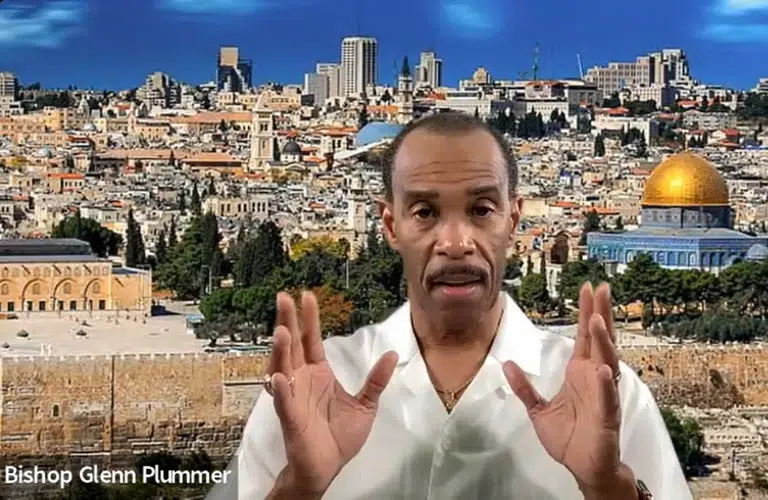
“I was invited by the white South African Apartheid government to come with seven other African American leaders — hospital administrators, broadcasters, ministers,” Plummer recalled. “We were flown first class by the South African government to be taken around the country and to see that it really wasn’t as bad as the media said it was — at least that was their aim. We agreed, under the understanding that we would be able to visit Nelson Mandela, who was still in prison at the time on Robbins Island. They took us around, to Johannesburg, Cape Town, all over. We spoke with many people, and I had a chance to preach in a church in Durban. So we saw the separation of the races, and I understood what Apartheid was and I was very sensitized to it as a Black American.”
“I think when we talk about ‘apartheid,’ that phrase is almost unique to South Africa,” he noted. “If we look at India for example, and the caste system there, people who are born in a certain class of people have to remain there all their lives, but we don’t call that ‘apartheid.’ The United States, with its history of slavery, racism, segregation, Jim Crow laws, was never referred to as an ‘apartheid’ state, interestingly.”
“’Apartheid’ is a unique nomenclature for the South African government and South Africa in its day, and this is because of what the system was,” Plummer said. “It was a four-tiered system, with ID cards. ‘Blacks’ were on the bottom, ‘Coloreds’ were over Blacks, then ‘Indians’ were above them, and the fourth and top class was ‘Whites.’ They were made to live not only in the area of their race, but they were disallowed to live in other areas.”
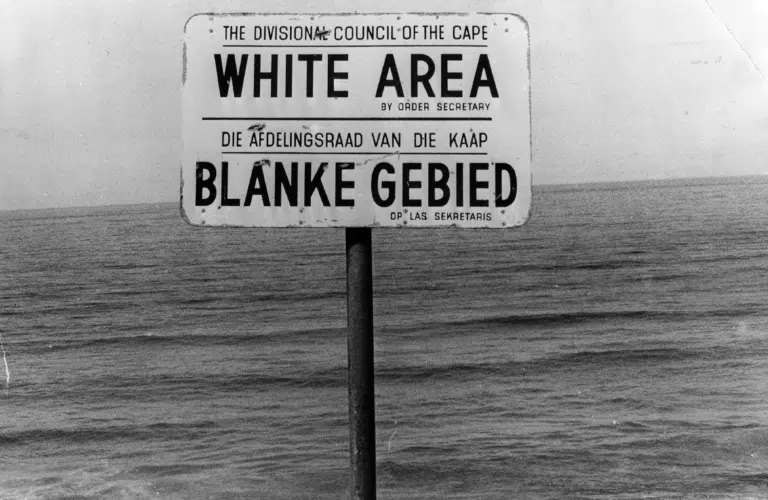
Plummer pointed out that “there is, unfortunately, a pretty robust atmosphere of racism in certain sectors of Israel, so if we’re going to be honest and open in this discussion, that has to be and acknowledgement and recognition of that.”
But, he emphasized, “by no means is Israel even close to an ‘apartheid’ state as South Africa.”
The “apartheid” charge against Israel, Plummer believes, “is rooted in, ultimately, the despising of Israel and the belief that Israel shouldn’t exist.”
“That entire narrative is at the base of it — that this land does not belong to the Jewish people,” he said.
“We’re quite clear, our Church and myself, that not only do we disagree with this narrative, but we do it vehemently,” Plummer declared.
Do you agree with the notion that calling Israel an “apartheid” state trivializes the suffering of South African Apartheid victims?
“That argument can be made, but I think it’s much more substantive than that. I think it’s a distraction to the responsibility of the Palestinian Authority, and more to the point, Hamas, and what they’re doing. I don’t hear any level of condemnation or opposition to rockets being indiscriminately shot into Israel by Hamas. If there was at least some level of condemnation, some level of acknowledgement, of those inhumane actions, then maybe we’d be able to sit down and have some legitimate conversation.”
The Israeli-Palestinian conflict has both nationalistic and religious elements. Are those who use the “apartheid” terminology trying to make it about race as well?
“They are absolutely attempting to make this a racial issue. And, unfortunately, because a great majority of the world has never been here, most people haven’t walked the streets of Tel Aviv, Jerusalem, and other cities both large and small in Israel, and seen the diverse racial makeup of Israelis.”
“Ethiopians, for example, are a very significant part of Israeli culture and society. And I don’t think there is a single Ethiopian Israeli who would agree that Israel is an ‘apartheid’ state. I believe that is critically important to note that here you have people of color, Israeli citizens loyal to this nation, who live here and experience human problems like everybody else, and they absolutely resist and condemn this claim of a race-based apartheid system in Israel.”

What do you feel is driving this campaign against Israel? Is there an antisemitic motive?
“I think it’s a hate-based, intentional effort to harm and hurt and delegitimize Jews from their responsibility over the Land of Israel. And I think it’s an intentional effort to delegitimize the Israeli government.”
“Definitions matter. And that’s the whole point about the ‘apartheid’ claim. What definition are we using? One of the battles of the ages is the power to define. Who defines what something means? What does ‘apartheid’ mean? What does ‘antisemitism’ mean? What does ‘anti-Christian’ mean? I understood ‘apartheid’ was something absolutely associated with the South African government, it applied to every citizen of South Africa, and it applied to four classes, or races of people. Now we’ve changed and shifted the definition of ‘apartheid’ to mean something else, a really slippery definition that basically means racism against Palestinians.”
Had the “apartheid” narrative about Israel become more prevalent in recent years among African-American Christians?
“No, not in our experience. However, the conversation is in fact becoming louder, and so there are people who are making this claim in places where their voices are being heard a little bit more. From the perspective, I guess there are people who are hearing that.”
“Within our Church though, which has around 6.5 million members in the U.S. and is present in 113 countries, that’s not a discussion I’ve heard on any level. And I might expand, that’s not a conversation that happens in the Black Church in general. There are some individuals who are Black Americans who may make that claim, characters who with voices who make outlandish statements and get media attention, but they’re not typically associated with the Black Church, of any denomination.”
In your view, what is the Christian role in the collective effort against antisemitism?
“From a humanitarian perspective, to hate any group of people is wrong. It’s unrighteous, it’s unjust, and I think as Christians, we have a responsibility to resist that. Biblically speaking, we have a mandate to bless Israel and frankly to stand with the Jewish people.”
“Something else I want to note that I think Jews and all those fighting antisemitism should also raise your voices against anti-Christian dogma that comes out of certain sectors of the Jewish community in Israel. And, frankly, I don’t hear that. One of the disappointments I’ve experienced is the lack of clear voices, among those fighting antisemitism and the delegitimization of Israel globally, against horrible things said about Christianity by some Jews. Fighting hatred must be a two-way street. Let’s do this together, there is a balance here.”
Can you speak a bit about African-American Christian support for Israel and its historical roots?
“Among African Americans, there is a very strong and consistent Zionist position. The basis is a biblical one and our understanding of the Scriptures. And that is centered around the Jewish narrative of coming out of slavery.
“Zionism is a modern concept, but Black Americans tie it all together. Many of our churches are named after places in Israel, or to a lesser degree, individuals, prophets of old. Going back to the days of civil rights. Dr. Martin Luther King Jr. himself was a Zionist, and those who marched and walked with him were very supportive of Israel as a nation. He was a very strong voice for Israel and as a result of that many Black Americans followed suit, to this day.”
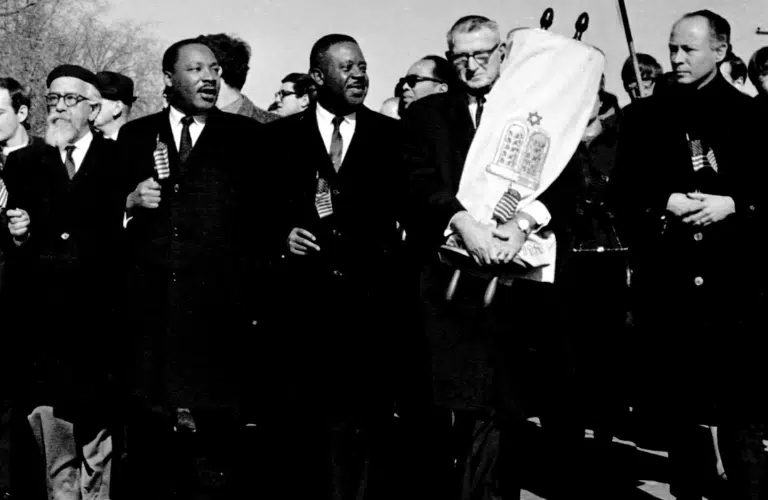
read more
Join Our Newsletter
Free to Your Inbox
"*" indicates required fields

